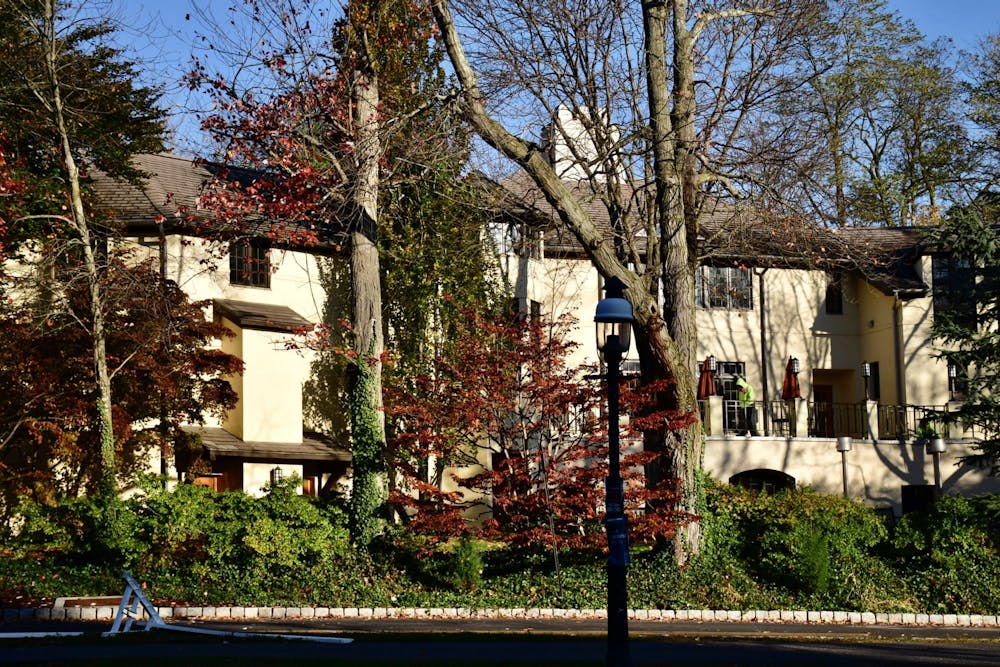I performed a wedding on March 13 for two close friends in the living room of the bride’s childhood home. This was the Friday before Princeton University’s spring break and the last day the Center for Jewish Life building was open to the community.
The wedding was originally scheduled to take place on Sunday, March 29, but with the growing concern about coronavirus and family members unable to travel safely, the public celebration was postponed.
The bride and groom wanted this private ceremony to make sure that the bride’s elderly mother could see her daughter married. With a homemade chuppah and wedding vows, joyful singing and the smashing of a glass, we consecrated this marriage — bride and groom, rabbi, mother, brother, sister-in-law, two friends, and a medical aide.
Last Wednesday, the bride’s mother died of coronavirus. The mayor of Princeton, N.J., indicated this was the first such death to happen in Princeton. The bride and groom, who were caring for the mother before she went to the hospital, are now in quarantine.
The reality of 1,000 Americans dying each day has a specific name and face for me, and I can see the mother of the bride with her walker, in a sparkly silver dress, crying and thanking me and saying, “I never thought I would live to see my daughter married.”
The next evening, the CJL hosted a Zoom call for parents where we talked about the adjustment to having college students living at home again, concern about academic motivation and summer internships, the loss of graduation celebrations, and prayers for health and safety. We also spoke about the remarkable shift the CJL has made in these past three weeks toward building community through phone calls and emails, online Torah study and blogs, virtual cooking classes, and Kabbalat Shabbat services over Zoom.
I was moved just to hear the parents mention the names of the students I miss so much.
At the end of the call, one parent lingered and shared that she had made seven shiva calls over Zoom in just this past week. I was so unsettled to hear this that I stayed up most of the night numbing myself with stupid television shows, falling asleep on the couch. During all of this, I saw a television commercial for State Farm Insurance. I don’t really remember what it was about, but there was one image that stuck with me. After scenes of closed schools, empty restaurants, and abandoned parks, there was a big outdoor sign, all in capital letters, that read, “HOPE ISN’T CANCELLED.”
And then it hit me that this is really the central message of the Passover seder that will be here whether or not we feel ready this Wednesday night. At our seders, beyond all the resonances of diminished freedom and the tips on how to hold seders over Zoom or with fewer people around the table or without an elaborate meal or even all the basics of the seder plate, beyond the celebration of freedom from slavery in Egypt and the singing of Dayeinu, is the message “hope isn’t cancelled.”
This year, CJL will be hosting a virtual seder on each night of Passover, and over 100 people are signed up to join us for the first night. Yesterday, as I was planning the seder with my colleague Rabbi Ira Dounn, we were debating what to do about opening the door for Elijah, since that traditionally takes place after dinner.
And then, in the middle of the night, it occurred to me that throughout the generations, no matter where Jews celebrated their seders and no matter how difficult their personal or national or worldwide circumstances, they opened the door to Elijah the prophet to usher in more redemption.
We sing Eliyahu HaNavi at the end of every Shabbat as part of the Havdallah ceremony inside our homes or synagogues or maybe outdoors at camp. But only on Passover do we bridge our families and our homes to the outside world by getting up from our tables and opening our doors to Elijah the prophet and to a vision of a world redeemed.

This year, when we are all restricted from leaving our homes and passing through the threshold of our doorways into the world, let us stand up despite our isolation, anxiety and despair, and open our doors and our hearts with singing. In doing so, each one of us will send into the world the quintessentially Jewish message that hope isn’t cancelled.
As we prepare to celebrate Passover at our seders this week, I am reminded of these words of prayer and hope written by Rabbi Naomi Levy. In that same spirit, I offer them to you:
Next Year in Jerusalem!
Next Year in Health!
Next Year Free from Worry!
Next Year with Family and Friends!
Next Year Feasting!
Next Year Rejoicing!
Next Year in Laughter!
Next Year in Love!
Next Year filled with Song and Celebration!
Next Year with a Vaccine!
Next Year in Abundance!
Next Year in Peace!
Next Year in Blessings!
Rabbi Julie Roth is the executive director of the Center for Jewish Life, Campus Rabbi and Jewish Chaplain at Princeton University.
Editor’s Note: This piece was adapted from an article that first appeared on ejewishphilanthropy.com.








